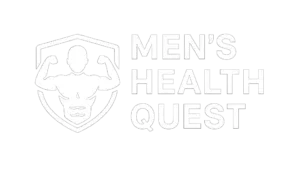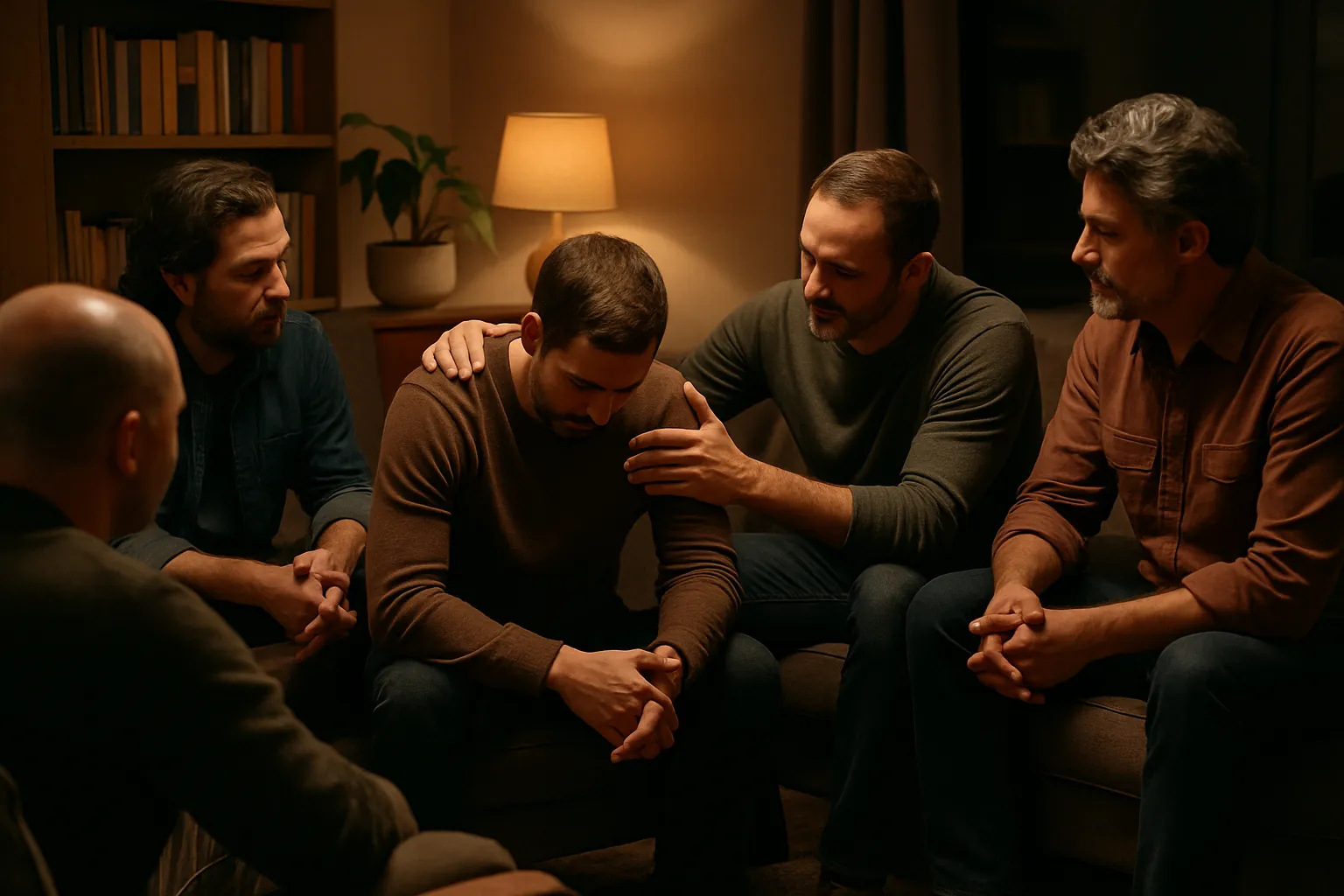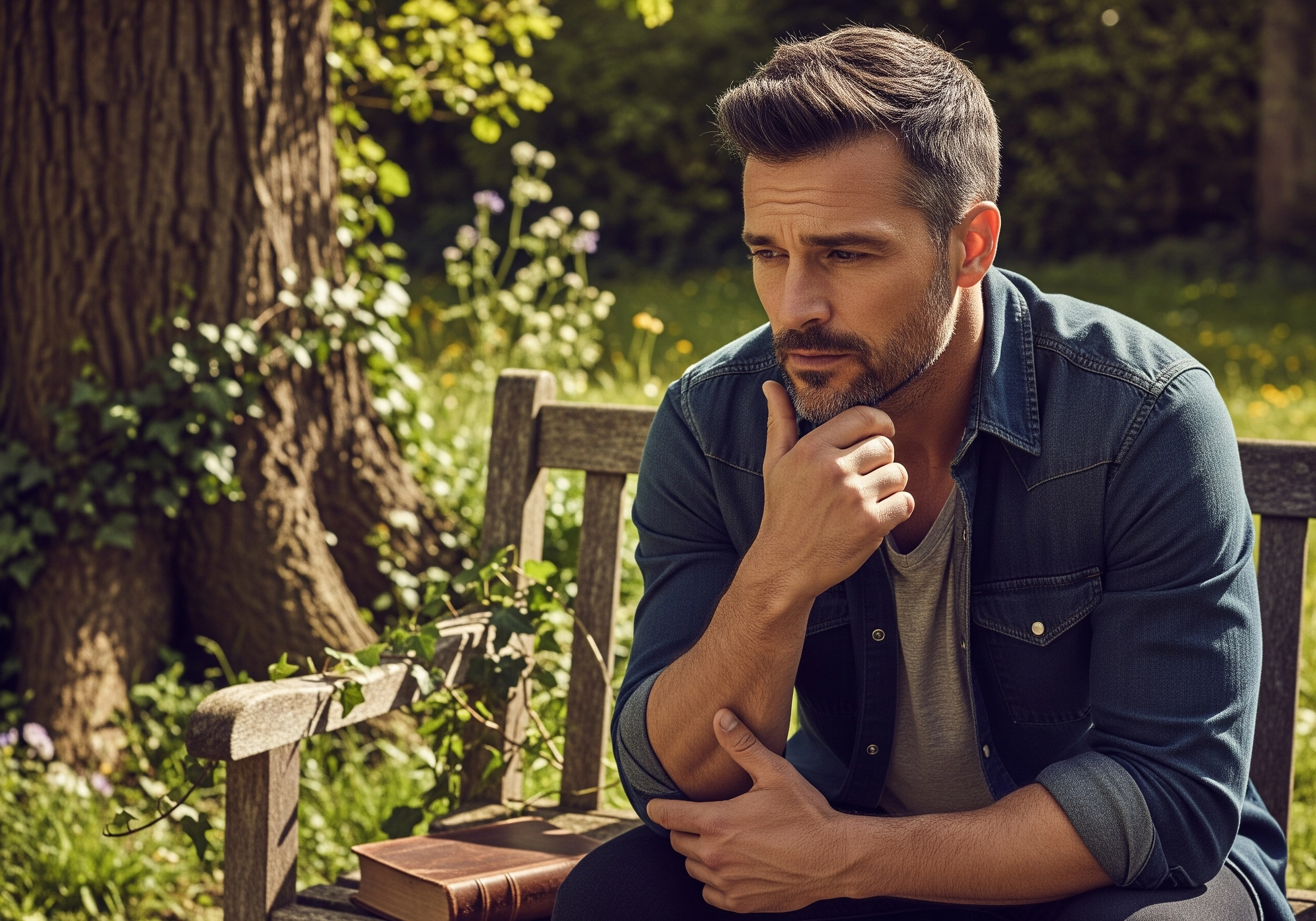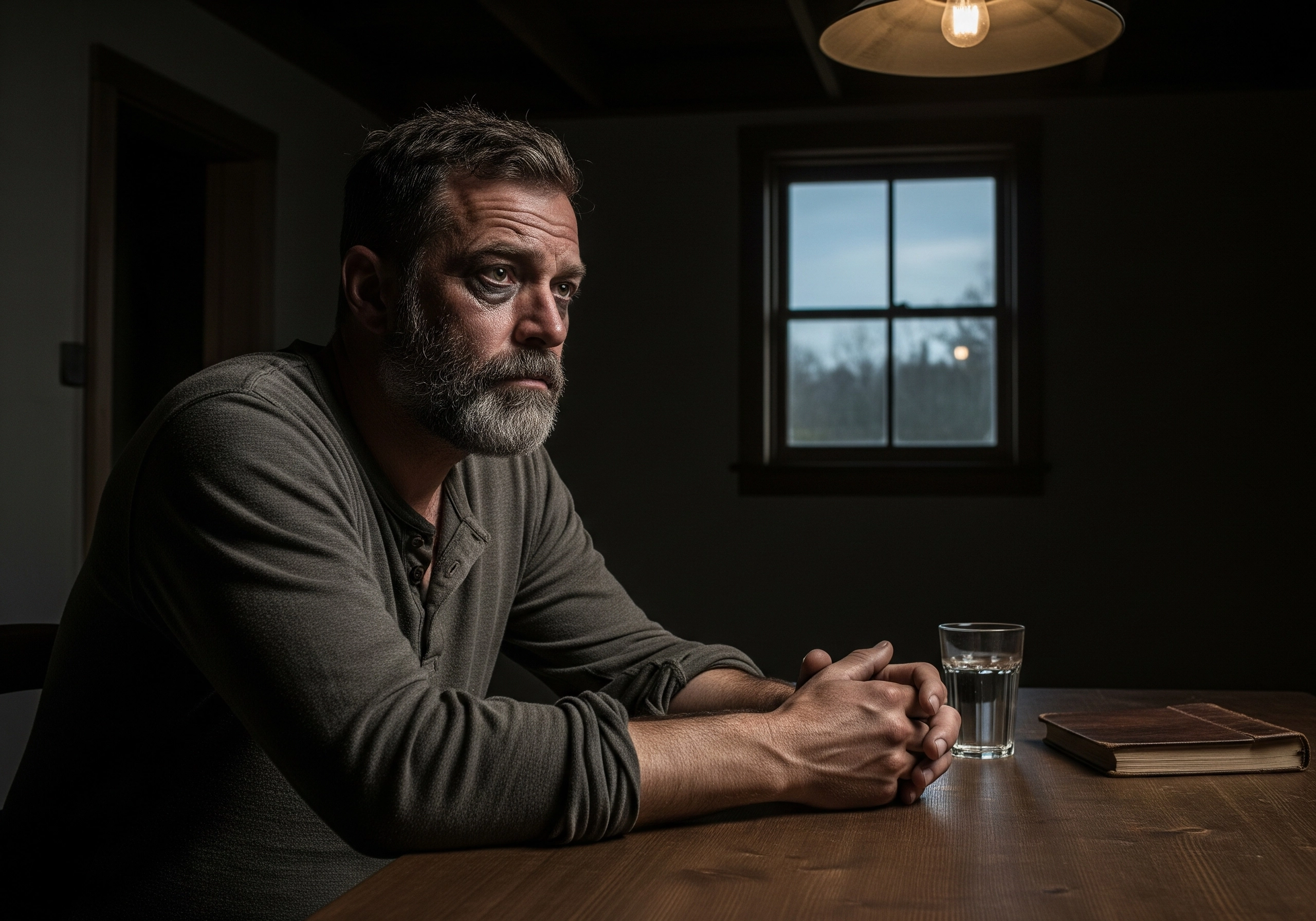The Underrated Power of Male Friendship
When most people talk about emotional support or healing, they often think of therapy sessions, intimate partner conversations, or family bonds. But there’s a form of connection that’s just as powerful, yet often overlooked — male friendship. The kind rooted in trust, loyalty, shared silence, and unspoken understanding. Brotherhood.
In a culture that often encourages men to be self-sufficient, emotionally restrained, and tough above all else, male friendships provide a counterbalance. They offer a space where men can let go, even briefly, of the constant performance. A space where they can show up as they are — not as who they’re expected to be.
True brotherhood can become a form of therapy. Not clinical, not scripted, but deeply healing.
Why So Many Men Are Starving for Connection
Despite being more “connected” than ever through technology, many men are emotionally isolated. Studies show that as men age, they tend to lose close friendships. Work, family, and the pressure to perform can lead them to neglect the deep bonds they once had. Conversations become practical, not personal. Depth gives way to small talk.
Some men have entire social circles but still feel profoundly alone — because no one in that circle knows what they’re really going through. Others haven’t had a heart-to-heart in years. The idea of being emotionally vulnerable, even with a close friend, feels foreign or risky.
This isolation is dangerous. It quietly erodes confidence, amplifies stress, and makes emotional pain feel like a personal failure. Men may cope through overwork, distraction, or substance use — anything but the one thing they really need: connection.
The Healing Begins With Presence
There’s something powerful about simply being around someone who gets you. No masks. No explanations. Just presence.
You don’t always need to talk deeply to feel supported. Sometimes healing starts with sitting next to a friend in silence. Watching a game. Going for a run. Fixing something in the garage together. These moments don’t demand vulnerability, but they create the environment for it to arise naturally.
Male friendships allow space for expression without pressure. Unlike structured therapy, there’s no clock running or agenda to follow. That freedom creates safety. And when a man feels safe, he may open up — not all at once, but in pieces. A comment here. A story there. A slow unfolding of emotion that would never surface in a crowded room or formal setting.
Shared Struggles Build Unspoken Bonds
One of the reasons male friendships can be so healing is that they’re often built around shared experience. Teammates, colleagues, classmates, brothers-in-arms. Men often bond shoulder to shoulder, not face to face — through doing, not just talking.
These shared struggles — physical, mental, or emotional — build unspoken trust. The kind that allows a man to say, “I’m not okay” without needing a five-minute preamble. The kind that turns simple words like “Same here” or “I get it” into a form of therapy.
It’s in those shared stories — about heartbreak, failure, doubt, or even joy — that a man realizes: I’m not the only one. That realization alone can lift years of emotional weight.
When Jokes Become a Language of Care
Male friendships often include a unique dynamic: humor. The teasing, sarcasm, and inside jokes that fly between close male friends can seem superficial from the outside — but they’re often a form of emotional expression.
A well-timed joke, a nickname, or a shared laugh can carry as much meaning as a long conversation. It’s how many men say, “I see you.” It’s how they maintain connection without always having to name what they’re feeling.
Humor creates a bridge — one that makes deeper conversation possible later. It lowers defenses, softens tension, and reminds us that even in struggle, there’s still space for lightness.
But it’s also important to recognize when humor masks pain. Real brotherhood includes knowing when to laugh — and when to ask, “No, but really — how are you?”
Reaching Out Isn’t Weakness — It’s Wisdom
One of the most transformative shifts in my own life came when I learned to reach out to my male friends — not just when I had good news, but when I was struggling. It felt unnatural at first. I worried about being a burden. I wondered if it would change how they saw me.
But when I did, something unexpected happened: they didn’t pull away. They leaned in. Some even said, “Man, I’ve been going through something similar.”
That one moment of honesty sparked a different kind of friendship — one rooted not just in shared interests, but shared truths. And I realized something I wish I’d learned years earlier: asking for support isn’t a weakness. It’s an act of wisdom — and deep courage.
Deepening the Bond: From Surface to Substance
Not every male friendship is built to hold weight. Many start — and stay — at the surface: shared interests, banter, memories from school or work. But to become healing, a friendship needs substance. That means creating space where real conversations can live.
You don’t have to start with deep questions like “What’s your biggest fear?” But you can go beyond the usual:
- “What’s been on your mind lately?”
- “How are you really doing with everything?”
- “You seem a little off — want to talk?”
These questions, asked with sincerity and timing, can shift the conversation into real territory. They signal that you’re not just catching up — you’re showing up.
And it’s not just about what you ask — it’s how you respond. Avoid giving advice too quickly or brushing off feelings with a joke. Instead, listen. Nod. Be still. Let silence stretch if it needs to. Sometimes, just being present is the most powerful thing you can offer.
Creating a Safe Space Without Making It Awkward
Many men avoid emotional conversations because they fear awkwardness. But emotional safety doesn’t require big displays or perfect words. It’s built in subtle ways:
- Consistency — showing up over time.
- Confidentiality — keeping personal shares private.
- Non-judgment — listening without correcting or minimizing.
- Reciprocity — sharing your own struggles too, when the time is right.
You don’t need to be a therapist to be a good friend. You just need to be someone who listens, who cares, and who reminds the people in your life: You’re not alone in this.
Safe friendships aren’t about fixing — they’re about feeling with. Being in it together. That’s how brotherhood becomes therapeutic.
Vulnerability Is Contagious — And Courageous
The moment one man decides to open up, he changes the dynamic of the group. Vulnerability is contagious. When you share honestly — not for attention, but from authenticity — you give others silent permission to do the same.
You might say:
- “Honestly, I’ve been struggling lately.”
- “I’ve felt disconnected and didn’t know how to say it.”
- “I’ve had some rough days — I’m working through it.”
These statements don’t make you weak. They make you trustworthy. They show that emotional honesty isn’t a threat — it’s a tool for connection.
Over time, these moments stack up. They create a culture of openness among friends — where it’s normal to check in, offer support, or call out a friend who’s gone quiet.
It only takes one man to go first. Be that man.
Brotherhood in Action: Showing Up When It Counts
Words matter — but so do actions. One of the most powerful forms of friendship is presence. Not when things are easy, but when they’re not.
When your friend goes silent, check in.
When he says he’s “fine” but doesn’t sound like it, ask again.
When life hits hard — a breakup, a job loss, a death — don’t wait to be invited in. Show up.
Sometimes showing up means sending a simple text:
- “Thinking about you. Let me know if you need anything.”
- “Want to go for a walk or grab a drink? No pressure.”
- “Just checking in — I’m around.”
Other times, it means taking the lead: calling, stopping by, making space for conversation. You don’t have to fix anything. You just have to be there.
In brotherhood, presence often matters more than words. It says: You don’t have to do this alone.
Making Time for Friendship in a Busy Life
Life gets full. Jobs, kids, partners, obligations. Many men drift apart not because they don’t care, but because they don’t prioritize friendship the same way they once did.
But brotherhood doesn’t demand hours every week. It asks for intention. It asks you to check in, reach out, and keep the thread alive.
You can maintain strong friendships by:
- Scheduling monthly catch-ups — coffee, walks, workouts.
- Starting a group chat — to share memes, struggles, or plans.
- Sending a quick voice note instead of just liking a post.
- Remembering birthdays, anniversaries, tough dates.
When you show up regularly, even in small ways, you keep the bond alive. And in those moments when life gets heavy, that bond becomes a lifeline.
When Friendships Need to Grow — or End
Not every male friendship is supportive. Some are built on old habits, competition, or emotional detachment. As you grow emotionally, some friendships will need to evolve — or be left behind.
It’s okay to outgrow relationships that no longer serve your well-being. That doesn’t make you disloyal. It means you’re choosing health. Real brotherhood allows space for growth, difference, and truth.
When possible, invite friends to grow with you. Start deeper conversations. Introduce new dynamics. But if they resist — mock your emotions, minimize your growth, or make vulnerability unsafe — you have every right to step back.
Brotherhood, like all healing, starts with boundaries.
The Ripple Effect of Emotionally Healthy Friendships
When men support each other emotionally, it doesn’t just benefit them — it changes families, communities, and future generations.
- Sons grow up seeing emotional expression as normal.
- Partners feel less burdened when men have multiple support systems.
- Workplaces become healthier when men aren’t emotionally bottled up.
- Friend groups evolve from locker-room talk to real-life connection.
Emotionally healthy male friendships challenge toxic norms. They show that strength includes softness, and leadership includes listening. They prove that care isn’t feminine — it’s human.
Every honest conversation between two men sets off a ripple. And those ripples create a cultural shift where mental health, openness, and healing are no longer rare — they’re respected.
Closing Thoughts: Brotherhood as Lifeline
I’ve had friends pull me out of darkness without even knowing it — just by being there. Just by answering the phone, making me laugh, letting me speak freely. Just by staying close when I wanted to retreat.
That’s what brotherhood is: therapy without the clipboard. Love without the pressure. Safety without the script.
You don’t need to be trained. You just need to care. To listen. To show up. To speak honestly and hold space for the same.
So reach out. Check in. Open up. Invite depth. And remember:




